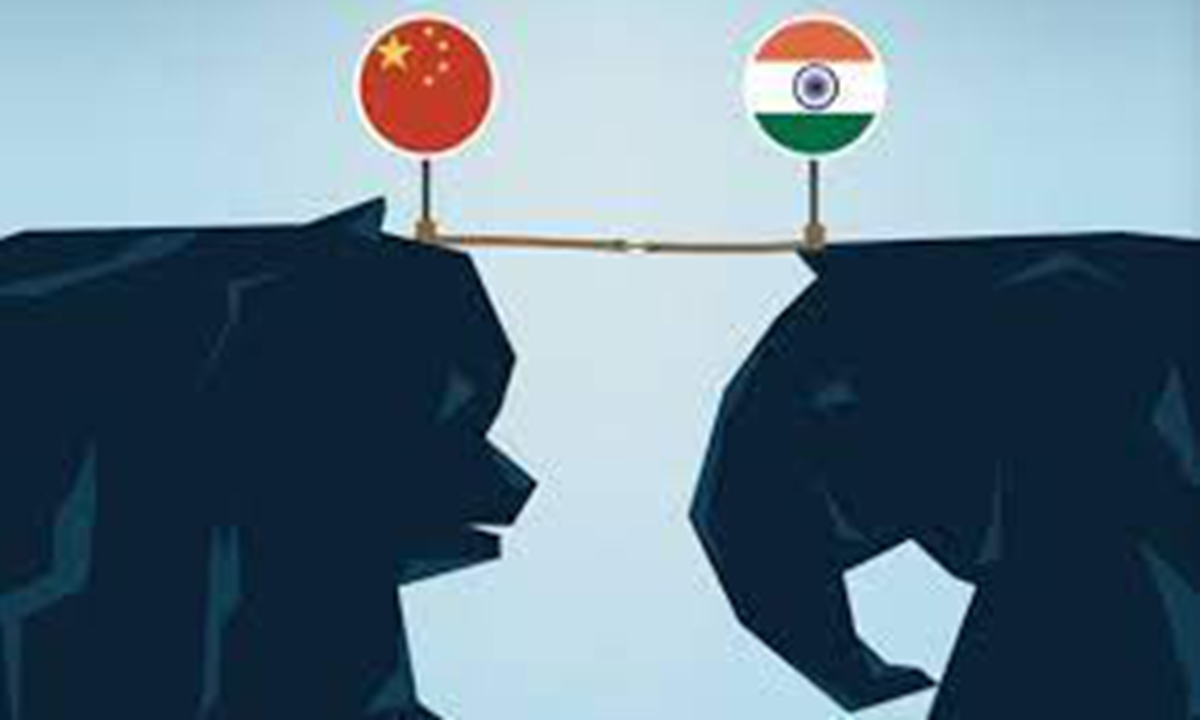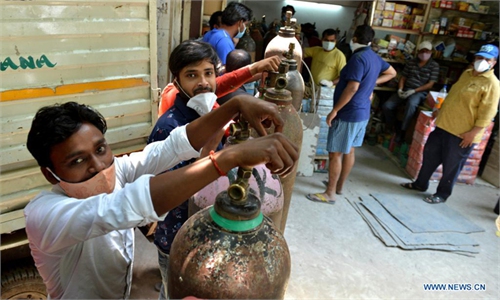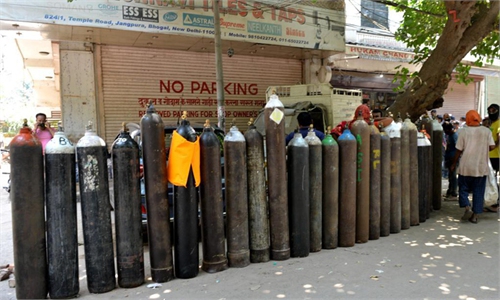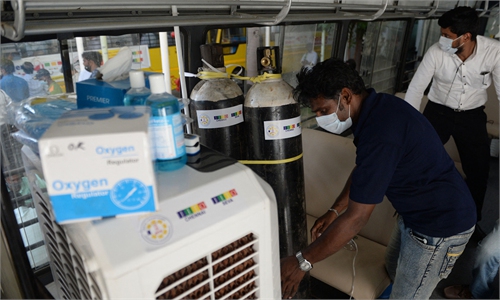China and India can cooperate on COVID-19 fight but tensions still in air

Photo: GT
The China-India relationship is going through a "very difficult phase," said Indian Minister of External Affairs Subrahmanyam Jaishankar on Wednesday. He accused China of deploying a large part of the military on or close to the LAC without explanation. However, he also said that during his conversation with Chinese State Councilor and Foreign Minister Wang Yi, "I told him that the best way you could help would be to look into the difficulties being faced by some of our companies that are ordering stuff from China. After our conversation, things immediately moved."This statement by Jaishankar reveals the position of many high-level Indian officers regarding current China-India relations. It also demonstrates that India holds a very pessimistic attitude toward the return of China-India relations to the level before the border dispute in the short term. China-India relations are indeed at a very difficult stage. Political exchanges and mutual trust have suffered serious setbacks. Economic and cultural exchanges have also been influenced. Although the two sides' disengagement process is still going on, the remaining issues along the Western section of the China-India border have not been completely resolved.
After China and India started to disengage from the border area, the whole area has generally remained peaceful and stable. The two sides still maintain close contact through diplomatic and military channels. Both sides also share a consensus that they don't want the situation to flare up.
Whereas China was providing oxygen generators to India, Indian Army Chief General Manoj Mukund Naravane reviewed the Indian Army's operational readiness in eastern Ladakh on April 27. Some Chinese observers are worried that given India's domestic epidemic situation, there may be a major social crisis there. They expressed concerns that the Indian government may even deliberately create border conflicts to shift people's attention away from domestic crises.
However, considering that the current epidemic situation in India is too severe, the Modi administration will mostly focus on preventing the virus from further spreading. But India will not have excess power and military resources to create conflicts on border area, since some military resources will be used to help control the epidemic.
According to reports from Indian media earlier this week, India Defense Minister Rajnath Singh is contemplating the deployment of the Army in Delhi to tackle the ongoing epidemic. At this juncture, in the face of China's firm attitude, Indian policymakers will not hastily take actions on border areas. It is unlikely that China and India will have a border conflict similar to last year.
After the outbreak of India's second wave of epidemic, China provided India with a lot of crucial anti-epidemic supplies, and Jaishankar also recognized the positive results of China's help. For example, in a phone conversation on April 30 with Chinese State Councilor and Foreign Minister Wang Yi, Jaishankar thanked China for its goodwill and solidarity, as well as its support to India in purchasing anti-epidemic materials. He also said that India is willing to further strengthen anti-pandemic cooperation with China. This is a much more positive response from the Indian government compared with the country's previous attitude to China's support. This can be seen as an important step forward.
Some Indian people should not misunderstand China's goodwill. In the era of a global community with a shared future for mankind, China has provided necessary support to India from a moral point of view. We were not expecting India to make the so-called geopolitical concessions, which would be too narrow-minded. Instead, we hope there will be more insightful and rational people in India who can understand and appreciate China's goodwill, instead of judging China's support with unbalanced geopolitical biases. In fact, politics is one of the most important reasons why India's COVID-19 epidemic has continued to spread.
The right and wrong on China-India border area have already been very clear. However, India has always seemed unable to meet China halfway and it has been passing the buck to China. Because of the prolonged border standoff, there is still a very strong anti-China atmosphere in India. But due to realistic reasons, the Indian government is also looking for opportunities to ease relations with China. Moreover, China-India cooperation in the COVID-19 fight can increase rationality among Indian people.
However, as Jaishankar said, China-India relations are going through a "very difficult phase." There are many historical and realistic disputes between the two countries. It would also be impractical to hope that tensions between Beijing and New Delhi will be greatly eased due to their cooperation against the COVID-19. Not in the short run anyway.
The author is director of the research department at the National Strategy Institute at Tsinghua University. opinion@globaltimes.com.cn



